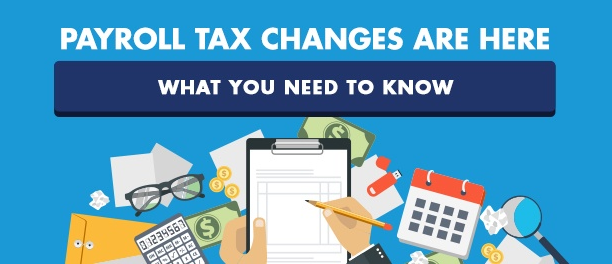10 Payroll Changes for 2019

By Debbie Gregory.
Due to recent changes in the US tax and employment laws, your payroll is likely to look very different in 2019 than it did in 2018.
Here are ten reasons why:
1.) New Employment Laws
For 2019 a few states added new employment laws. For example, Oregon prohibits employers from paying employees different amounts for the same or comparable work. In California, employers with five or more employees now must provide sexual harassment training. Both Oregon and Washington increased their unemployment base tax amounts. Check with your state for any new laws that may impact your business.
2.) New Minimum Wage Rules
Though the federal minimum wage is $11.10 per hour beginning in 2019, approximately twenty states have increased their minimum wage. State or local rates apply if they are higher than the federal rate.
3.) Unemployment Tax Changes
A few states made changes to their unemployment tax rate, laws, and claims. Check with your state for any possible changes.
4.) Workers Compensation
This is another area where you will need to check with the specific state you are in – some states raised premiums, some lowered them, and others made no changes.
5.) New Employment Posters
The US Department of Labor and OSHA require businesses with a certain number of employees to visibly display specific information in the business about minimum wage rates, paid leave, and more. Check their websites for more information and how to obtain free copies of these posters for your business.
US D.O.L. : https://www.dol.gov/whd/regs/compliance/posters/flsa.htm
OSHA : https://www.osha.gov/Publications/workplace_poster_page.html
6.) New Social Security Wage Base
The Social Security Tax base limit was raised from $128,400 in 2018 to $132,000 in 2019. The employer and the employee each pay 6.2% of Social Security tax up to the wage base limit.
7.) Employee Transportation Benefits
If you offer your employees transportation benefits such as free parking, transit passes, or carpooling, you can no longer deduct this benefit on your business taxes at the end of the year. Instead you must claim these fees as part of your lease payments. See the guide from the IRS on this topic here : https://www.irs.gov/newsroom/irs-issues-guidance-for-determining-nondeductible-amount-of-parking-fringe-expenses-and-unrelated-business-taxable-income-provides-penalty-relief-to-tax-exempt-organizations
8.) Medical Coverage Options
The employer mandate for companies with 50 or more full-time employees is still in place for 2019 though there have been some changes to other coverage options. Health savings account limits have increased as well as the contribution amounts for qualified small employer health reimbursement arrangements (QSEHRAs). Additionally, there are a lot more options for plans in the group market through trade associations, chambers of commerce and more.
9.) FSA Limits
Flexible spending account limits have increased for 2019. Please check with the IRS for more information : https://www.irs.gov/pub/irs-drop/rp-18-57.pdf, or a qualified professional.
10.) Employee Elective Deferrals
If your business offers a retirement plan with salary reduction contributions (employee elective deferrals), the limits for 2019 have changed. For more information, please refer to documentation from the IRS : https://www.irs.gov/pub/irs-drop/n-18-83.pdf
Keeping up with all the law changes that impact your payroll can be quite daunting. Working with a CPA or a good payroll service can help you better adapt to these changes and incorporate them at the appropriate times. Always consult with professionals if you have questions or need guidance with any federal, state, or local law changes.










